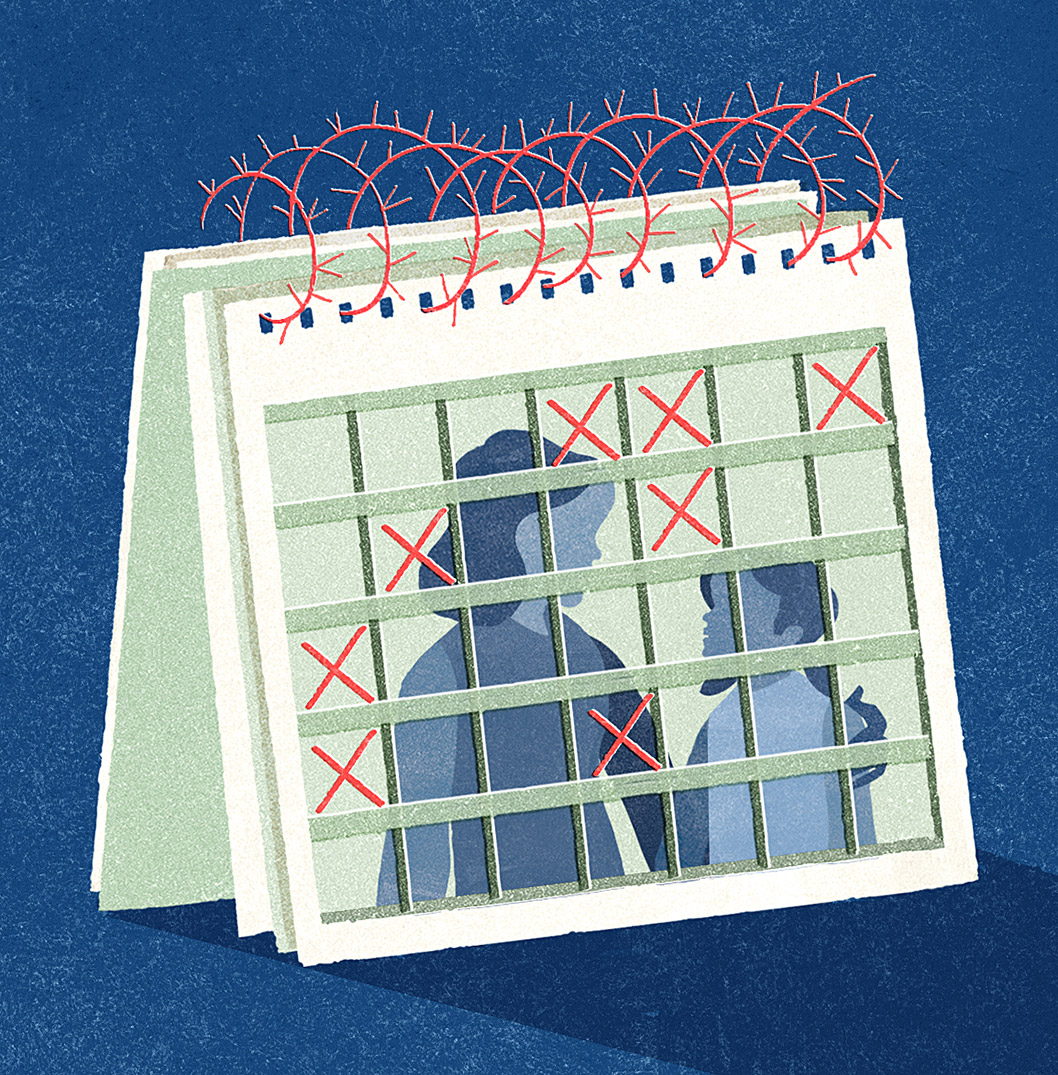Eight-year-old “Aaliya” was at school when her mom was arrested by Canada Border Services Agency. The officers and her mother came by during recess and scooped her up. Home for her and her mom for the next 13 months was immigration detention.
One hundred and fifty-one minors spent time in immigration detention in Canada in 2017-18, according to the Canada Border Services Agency. Seven kids were on their own, but most were pulled in when a parent was apprehended. Parents who don’t have a trusted guardian must take their kids with them into the detention centre or leave them with child protection authorities.
Fourteen of these children were Canadian citizens. And being Canadian puts them at a disadvantage: as citizens, they can’t be formally detained, so they can’t even get hearings to address their detentions.
As well, in Canada, any non-citizen can be detained, says Hanna Gros (JD 2016), an immigration and refugee lawyer with U of T’s International Human Rights Program. That includes the undocumented and people claiming refugee status right through to those who are already permanent residents. “Detainees don’t have a countdown to their date of release,” she adds. One man was detained for more than 11 years. Canada is one of the few Western countries without a time limit.
“There is a lot of uncertainty in the system,” says Gros. Officers and adjudicators have a lot of discretion. “If people are deported while certain applications are being processed, there’s a much lower chance that it’s going to be granted.”
A Sanctuary City designation is only as good as “the implementation of it,” says Michaela Beder, an assistant professor in U of T’s department of psychiatry. “It has to be widely known across public services and appropriately enforced.”
That means there’s a risk every time a person with undocumented status interacts with authorities: Not having proof of payment for your transit fare. Taking your assaulted child to the hospital. Trying to drive your drunk boss home from a night out. None of these real examples ended well.
Changing Canada’s Detention System
The work of U of T’s International Human Rights Program (IHRP) has led to real change in Canada’s immigration detention system. Along with other groups, IHRP has lobbied for avoiding family separation when a parent is detained. And the number of children who are detained in Canada has, in fact, dropped. In the GTA, for example, three children were detained in 2018-19, according to the Canada Border Services Agency. Says Hanna Gros, a lawyer with IHRP, “It’s been really great to be able to make headway on this front, acknowledging that we are by no means at a point where we can stop doing advocacy on this.”
IHRP’s advocacy work has also led to regulatory changes. Adjudicators in detention hearings must now take into account the best interest of the child, whether they are formally in detention or are in a facility because their parents are detained.
Thanks to Gros and her colleagues, some stats are now publicly available on the number of children in detention in Canada, the average length of detention and whether or not the children are Canadian citizens. While IHRP has yet to receive complete data, Gros says, “We have some data now so we know what we’re dealing with.”
IHRP has also worked with the Canada Border Services Agency and the Immigration Division on developing policy guidelines.
This is one of a five-part series entitled “In Search of Safe Refuge,” covering issues of health care, employment, detainment, shelter and education for refugees and migrants in Canada.
Recent Posts
People Worry That AI Will Replace Workers. But It Could Make Some More Productive
These scholars say artificial intelligence could help reduce income inequality
A Sentinel for Global Health
AI is promising a better – and faster – way to monitor the world for emerging medical threats
The Age of Deception
AI is generating a disinformation arms race. The window to stop it may be closing






2 Responses to “ Immigration Detention ”
What are the current laws regarding detention and violation of human rights?
@Vaishali
You'll find some useful information here.